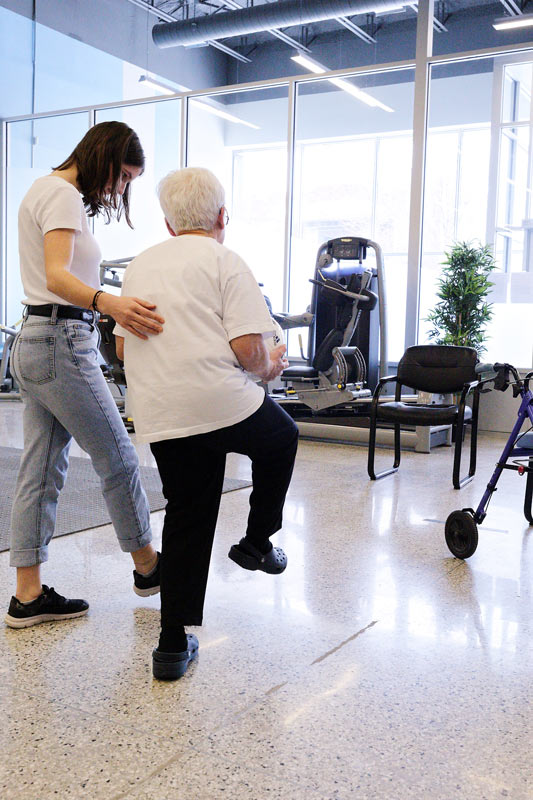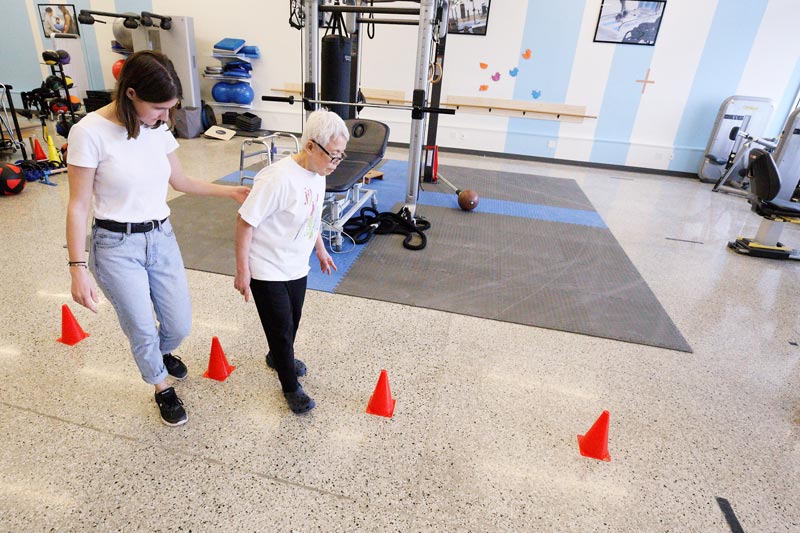🧠 Parkinson’s Disease and Related Disorders: Rehabilitation and Support
Regain mobility, independence, and control over daily life
Parkinson’s disease is a chronic, progressive neurodegenerative disorder that affects the central nervous system. It results from the gradual loss of dopamine-producing neurons in the substantia nigra, an area of the brain responsible for coordinating movement.
“Like an engine that runs too fast, neurons responsible for movement burn out faster.”
— Louis-Eric Trudeau, Neuroscientist, Université de Montréal
🔍 Common Motor Symptoms of Parkinson’s Disease
- Resting tremor (hands, arms, or legs)
- Muscle rigidity (stiffness and reduced range of motion)
- Bradykinesia and akinesia (slowness and poverty of movement)
- Postural instability and balance issues
- Speech and handwriting difficulties, mild cognitive changes
Parkinson’s disease is the second most common neurodegenerative disease after Alzheimer’s. It typically begins between ages 55 and 70, though 5–10% of cases may show signs before age 40.
Louis-Eric Trudeau, professeur de pharmacologie et de neurosciences à l’université de Montréal, explique ainsi, par une surchauffe de neurones, l’un des mystères de la maladie de Parkinson…

🔍 Related Disorders
Some neurological conditions present symptoms similar to Parkinson’s disease but differ in cause, progression, and treatment. These are grouped under the term parkinsonian syndromes or Parkinson-plus disorders.
1. Essential Tremor
- Action tremors (occur during movement)
- No rigidity or slowness
- Often hereditary
2. Normal Pressure Hydrocephalus (NPH)
- Accumulation of cerebrospinal fluid in the brain
- Gait disturbances, urinary incontinence, cognitive decline
- Diagnosed through brain imaging
3. Atypical Parkinsonian Syndromes
- Multiple System Atrophy (MSA): autonomic dysfunction (e.g., low blood pressure, constipation)
- Progressive Supranuclear Palsy (PSP): early falls, eye movement abnormalities
- Corticobasal Degeneration (CBD): asymmetric symptoms, cognitive issues
4. Drug-Induced Parkinsonism
- Triggered by certain antipsychotic or anti-nausea medications
- Usually reversible upon stopping the medication

🧭 Diagnosis and Management
Diagnosis is based on clinical examination, symptom history, and sometimes imaging tests. It is essential to consult a specialized neurologist.
🏥 Specialized Neurorehabilitation at Neuro-Concept
While there is currently no cure for Parkinson’s, targeted rehabilitation can slow symptom progression, enhance functional independence, and improve quality of life.
Our approach focuses on:
- Preserving mobility and autonomy
- Improving movement coordination and flexibility
- Reducing fall risk and secondary complications
- Supporting mental well-being and self-confidence

🧩 Our Specialized Services for Parkinson’s and Related Disorders
🔹 Neurological Physiotherapy
Improves posture, gait, balance, coordination, and reduces muscle rigidity.
🔹 Adapted Kinesiology
Personalized exercise programs to enhance muscular strength, endurance, and cardiovascular health.
🔹 Occupational Therapy
Supports daily living skills, functional independence at home and in the community, and promotes safety and accessibility.
🔹 Speech Therapy (if needed)
Improves speech clarity, swallowing function, and communication abilities.
🔹 Educational and Psychosocial Support
Offers practical guidance for managing symptoms, adapting routines, and supporting caregivers.
🔄 Why Is Rehabilitation Crucial for Parkinson’s?
Parkinson’s symptoms progress at different rates for each individual. A proactive and continuous rehabilitation plan helps to:
- Maintain motor and cognitive abilities
- Delay loss of independence
- Minimize fall risk and prevent hospitalizations
- Support active social and community life
🎯 Our Goal: Optimize Your Functional Potential
At Neuro-Concept, we provide programs that are:
✅ Tailored to your needs and stage of the disease
✅ Evidence-based, aligned with clinical best practices
✅ Evolving, with long-term support as your condition changes
Whether you are newly diagnosed or further along in your journey, it’s never too early—or too late—to start rehabilitation.
Ressources: la société de Parkinson du Québec, le réseau Parkinson

